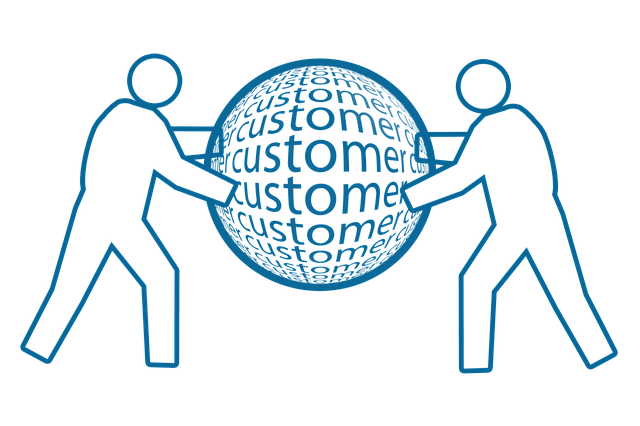Small businesses can leverage CRM for automation to streamline operations and enhance customer interactions. By automating marketing and sales processes, they achieve efficiency gains, improve customer retention, and boost lead generation. Key features include lead generation, data analysis, and personalized interactions. Setting clear goals, defining KPIs, and integrating marketing analytics are crucial steps for successful CRM automation that drives business growth in a competitive market.
Small businesses can harness the power of CRM automation to streamline operations, enhance efficiency, and drive growth. This article explores the best practices for implementing CRM automation, focusing on strategies that are both accessible and effective. From understanding the benefits of automated processes to selecting the ideal CRM platform and setting well-defined goals, we provide a comprehensive guide. Learn how to capture and qualify leads automatically while tracking key performance indicators (KPIs) for continuous improvement.
- Understanding CRM Automation Benefits for Small Businesses
- Selecting the Right CRM Platform for Automation
- Setting Clear Goals and Defining Automation Workflows
- Implementing Lead Capture and Qualification Automation
- Measuring Success: Tracking KPIs for Continuous Improvement
Understanding CRM Automation Benefits for Small Businesses

Small businesses often face unique challenges when it comes to managing customer relationships. This is where CRM (Customer Relationship Management) automation steps in as a powerful tool. By automating various processes, small businesses can achieve significant efficiency gains and improved customer interactions. The benefits are vast; from streamlining sales pipelines to enabling more personalized marketing campaigns, an automated CRM system offers a competitive edge in today’s fast-paced market.
For instance, marketing automation allows businesses to send targeted emails, nurture leads, and analyze customer behavior, all without manual intervention. This not only saves time but also ensures consistent communication. An ecommerce solution integrated with CRM automation can optimize the entire customer journey, from product discovery to post-purchase support. By leveraging data-driven insights, small businesses can make informed decisions, enhance customer satisfaction, and drive growth.
Selecting the Right CRM Platform for Automation

When it comes to CRM automation for small businesses, choosing the right platform is a pivotal first step. Not all Customer Relationship Management (CRM) systems are created equal when it comes to automating processes. Look for a solution that offers robust automation capabilities tailored to your industry and business size. A comprehensive CRM for automation should seamlessly integrate with your existing tools and streamline sales, marketing, and customer service workflows.
Consider features like automated lead generation, email marketing automation, social media marketing automation, and intelligent data analysis. These functionalities will help you nurture leads, personalize customer interactions, and gain valuable insights into consumer behavior. By selecting a CRM platform that aligns with your business needs, you can maximize the potential of automation to drive efficiency, improve customer engagement, and ultimately, boost revenue growth.
Setting Clear Goals and Defining Automation Workflows

Setting clear goals is a foundational step for successful CRM automation. Small businesses should first define their primary objectives, whether it’s improving customer retention, enhancing lead generation, or streamlining sales processes. These goals will guide the implementation of automation workflows within the customer relationship management (CRM) system. By understanding what they aim to achieve, business owners can create targeted automation sequences that effectively manage customer interactions and nurture leads.
Once goals are established, businesses can design automated workflows tailored to their unique needs. This involves mapping out the entire process, from initial customer contact to post-purchase follow-ups. For instance, a marketing automation sequence might include welcoming new subscribers with an introductory email series, followed by personalized product recommendations based on browsing behavior. By breaking down complex processes into manageable stages, small businesses can ensure their CRM automation efforts are strategic and aligned with their overall business strategies.
Implementing Lead Capture and Qualification Automation

Small businesses can significantly benefit from implementing lead capture and qualification automation as part of their CRM for automation strategies. By leveraging marketing automation tools, companies can streamline the process of collecting customer information through various channels like website forms, social media interactions, or event sign-ups. These automated systems efficiently filter and qualify leads based on predefined criteria, ensuring that sales teams focus on the most promising prospects.
This approach not only enhances lead generation efforts but also improves reputation management by providing a structured and responsive communication system. Automated lead nurturing campaigns, for instance, can deliver targeted content, offers, or follow-up messages to potential customers, increasing engagement and conversion rates. Effective use of CRM automation in this area sets small businesses up for success by optimizing their marketing and sales processes through technology.
Measuring Success: Tracking KPIs for Continuous Improvement

Measuring success is a vital component of CRM automation for small businesses. By tracking key performance indicators (KPIs), business owners can gain valuable insights into the effectiveness of their automated processes. These KPIs might include metrics like sales conversion rates, lead generation sources, customer retention figures, and average response times to customer inquiries. For instance, a small e-commerce store could monitor the success of its automated email campaigns by tracking open rates and click-throughs, enabling them to refine their strategies over time.
Moreover, integrating marketing analytics into CRM automation allows for data-driven decisions. Analyzing missed call text backs can provide insights into customer preferences and communication patterns. Businesses can then use these findings to optimize their CRM systems, ensuring that automated processes are not just efficient but also aligned with customer expectations. This continuous improvement approach is crucial for small businesses aiming to stay competitive in a rapidly evolving market, leveraging automation to enhance every aspect of their operations.
Small businesses can harness the power of CRM automation to streamline operations, enhance customer relationships, and boost growth. By understanding the benefits, choosing the right platform, setting clear goals, implementing efficient workflows, and tracking key performance indicators (KPIs), entrepreneurs can leverage technology to create a competitive edge in today’s market. Adopting best practices for CRM automation ensures that small businesses operate effectively, maintain strong customer connections, and achieve long-term success.
